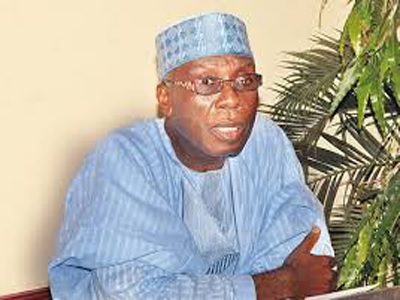The Federal Government, yesterday, gave the ECOWAS Transhumance Protocol as a reason why non-citizens of Nigeria are still allowed to graze their cattle across the country.
It has been established that many herdsmen who are involved in clashes in Nigerian villages were not Nigerians.
The ECOWAS Transhumance Protocol, the government stated, has given the right of free movement to citizens of member countries.
The Minister of Agriculture and Rural Development, Chief Audu Ogbeh, who disclosed this at the opening of a two -day Stakeholders’ Consultative Forum on Grazing Reserves and Stock Routes in Abuja on Thursday, told journalists that the law is similar to the fundamental right to freedom of movement in the Nigerian constitution.
Chief Ogbeh said: “The Nigerian constitution has given every citizen the fundamental right to freedom of movement in search of legitimate businesses; transhumance pastoralism is seen along these lines.
“For pastoralists from neighbouring West African countries, access to grazing rights in other countries in the ECOWAS zone including Nigeria, are guaranteed by the ECOWAS Transhumance Protocol of 1998 and ECOWAS Protocol of Free Movement of Goods and Persons in West Africa.”
Ogbeh stated that the ECOWAS Transhumance Protocol allows for herders to move across borders in search of pasture upon fulfilling the conditions laid down in the Protocol.
“So it is not strange to see a Malian, Burkinabe or Nigerien pastoralist grazing his cows, sheep or goats in Nigeria or a Nigerian pastoralist grazing his livestock in Benin, Togo or Ghana and by extension, transhumance pastoralists from other neighbouring countries,” he added.
The minister noted that pastoralists who provided bulk of livestock and dairy products consumed locally, employ mobility as a production strategy.
Chief Ogbeh, regretted that the movement of animals within and across agro-ecological zones had precipitated resource use competition that had resulted in high incidence of conflicts between crop farmers and pastoralists across the country.
According to Ogbeh, the conflict had taken a massive tool on the nation’s economy, stressing that, “the present deadly conflicts reportedly occur mostly between the Nigerian transhumance herders and/or the cross border transhumance pastoralists on hand and the local crop farmers on the other.”
On ways to mitigate the conflict between the groups and promote commercial livestock production, the minister stated that grazing reserves and stock routes development and utilization had been stepped up in recent years.
“The grazing reserves are to settle transhumant pastoralists and reduce/eliminate crop farmer-pastoralist conflicts,” he stated.














No comments :
Post a Comment